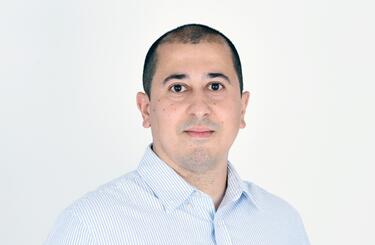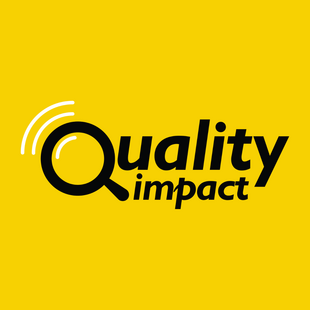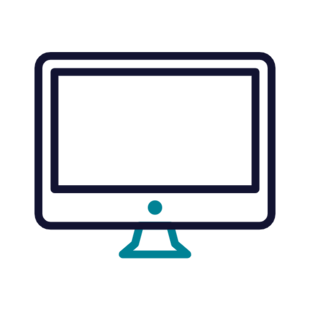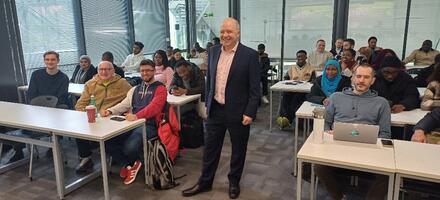
From policing to partnership
Progress indicator

Azad Guluzada CQP MCQI, a Lead Auditor and senior quality professional, emphasises how the quality must be the responsibility of everyone working in oil and gas projects.
In oil and gas projects, the stakes are exceptionally high. A single quality lapse can cause leaks, shutdowns, environmental damage and major safety incidents. For too long, quality was seen as the sole responsibility of quality assurance and quality control inspectors, who served as a policing function at the end of the process. But today, this view is no longer fit for purpose.
Modern projects demand something different: quality as everyone’s responsibility. From engineering to construction, from leadership to the frontline, shared ownership of quality has become essential for delivering safe, reliable and cost-effective outcomes.
The old model: inspection as policing
Traditionally, inspection was seen as the ultimate guarantee of quality. Inspectors checked welds, reviewed certificates or verified torque values, often at the final stages of work. But this policing approach only identified errors after they occurred, leading to costly rework.
A simple way to capture this relationship is through a formula:
Rework = Inspection – Ownership
This underlines that without ownership, inspection turns into rework. The less ownership there is, the more problems inspection uncovers – often too late. Therefore, the more ownership there is, the fewer issues will remain after inspection.
The formula can therefore be rearranged as follows:
Ownership = Inspection – Rework
This emphasises ownership as the balancing force, with true ownership reducing the rework left over after inspection. If ownership equals inspection, then rework falls to zero – the ideal state. And finally, another way of looking at it:
Inspection = Ownership + Rework
Here, inspection is shown as a neutral function: it simply reveals both what has been done right (ownership) and what has gone wrong (rework).
The mix depends on culture. With weak ownership, most inspections will generate rework. With strong ownership, inspection largely confirms success.
Together, these simple equations explain why inspection alone cannot assure quality; it only reflects the balance between ownership and rework.
"Quality is an interface discipline. It lives in the connections between people, teams and processes. By embracing partnership and leadership presence, we can turn risks into strengths and compliance into culture."
From policing to partnership
Oil and gas companies are learning that quality cannot be delivered through enforcement alone. It must come from partnerships between operators and contractors, and every discipline involved in project execution.
Consider the following equation:
Sustainable quality = (Policing → Partnership) × Culture
This equation captures the shift: policing might catch errors, but only partnership, reinforced by culture, sustains quality. Culture turns compliance into commitment, where every individual sees themselves as accountable for the outcome.
Quality lives at the interfaces
In my experience, quality is less about isolated tasks and more about the interfaces where those tasks connect. A spool can be fabricated within tolerance, but if it misaligns during installation, the system will leak. An actuator can be assembled correctly, but if settings are not communicated to operations, premature failure is almost certain.
Quality = Σ (Disciplineᵢ × Disciplineⱼ × Partnership)
This formula reflects a hard truth: when partnership is missing at the boundaries between disciplines, quality collapses. One zero at an interface reduces the sum of all efforts. But when partnership is present, the interfaces become points of strength instead of risk.
For those not familiar with some of the symbols used in the above equation, the Σ symbol means summation, showing that quality emerges from combined contributions of multiple disciplines. Disciplineᵢ and Discipline represents an interface – the point where two disciplines must work together. If either discipline fails, the interface collapses.
Right first time in practice
‘Do it right first time’ (DIRFT) is a catchy slogan often printed on posters, but in oil and gas it cannot remain just that – it must be lived as a discipline. Achieving DIRFT means planning effectively, verifying thoroughly and engaging everyone in the process.
DIRFT = Plan × Verify × Engage → Quality
Because this is multiplicative, if one factor is missing, the entire outcome collapses, which means that anything multiplied by zero equals zero. This model emphasises that quality is systemic – it only succeeds when all three elements are present.
Leadership on the ground
Another lesson is the role of leadership – quality cannot be managed from behind a desk. Leaders need to be present in the yard, the fabrication shop or offshore, to understand real conditions, risks and challenges first-hand. This visible presence closes the gap between planning and reality.
Quality = (Responsibility + Interfaces + Leadership) ÷ Distance
The greater the distance between leadership and the workplace, the lower the quality. Reducing that distance through ‘boots on the ground leadership’ raises quality outcomes and reinforces the message that it truly belongs to everyone.
Everyone’s responsibility
Oil and gas projects demonstrate why quality is everyone’s responsibility. The industry has moved beyond a policing mindset to one built on partnership, ownership and culture. Quality is not guaranteed by inspection alone, but by how disciplines work together, how leaders engage, and how responsibility is shared across the project.
My personal view is simple: quality is an interface discipline. It lives in the connections between people, teams and processes. By embracing partnership and leadership presence, we can turn risks into strengths and compliance into culture.
The formulas I have shared in this article are my own way of expressing these lessons from oil and gas practice. They are not industry standards, but personal models, developed from experience, that I hope will encourage reflection and dialogue within the wider quality community.
In oil and gas – and in every industry – this evolution is not optional. It is survival.
12 ways the oil and gas sector makes quality work
Learn more about the role of quality in the oil and gas sector, and why standards, compliance and risk management are its bedrock.
Quality World

Get the latest news, interviews and features on quality in our industry leading magazine.
The latest from the CQI Podcast

Listen to the Quality Impact podcast, where experts share insights on the evolving role of quality across industries.
Quality Careers Hub

Exclusively for members, the CQI’s Quality Careers Hub is designed for every career stage. So whether you’re just starting out, ready to move on or up, or looking to build on your experience, there are many ways to progress.


